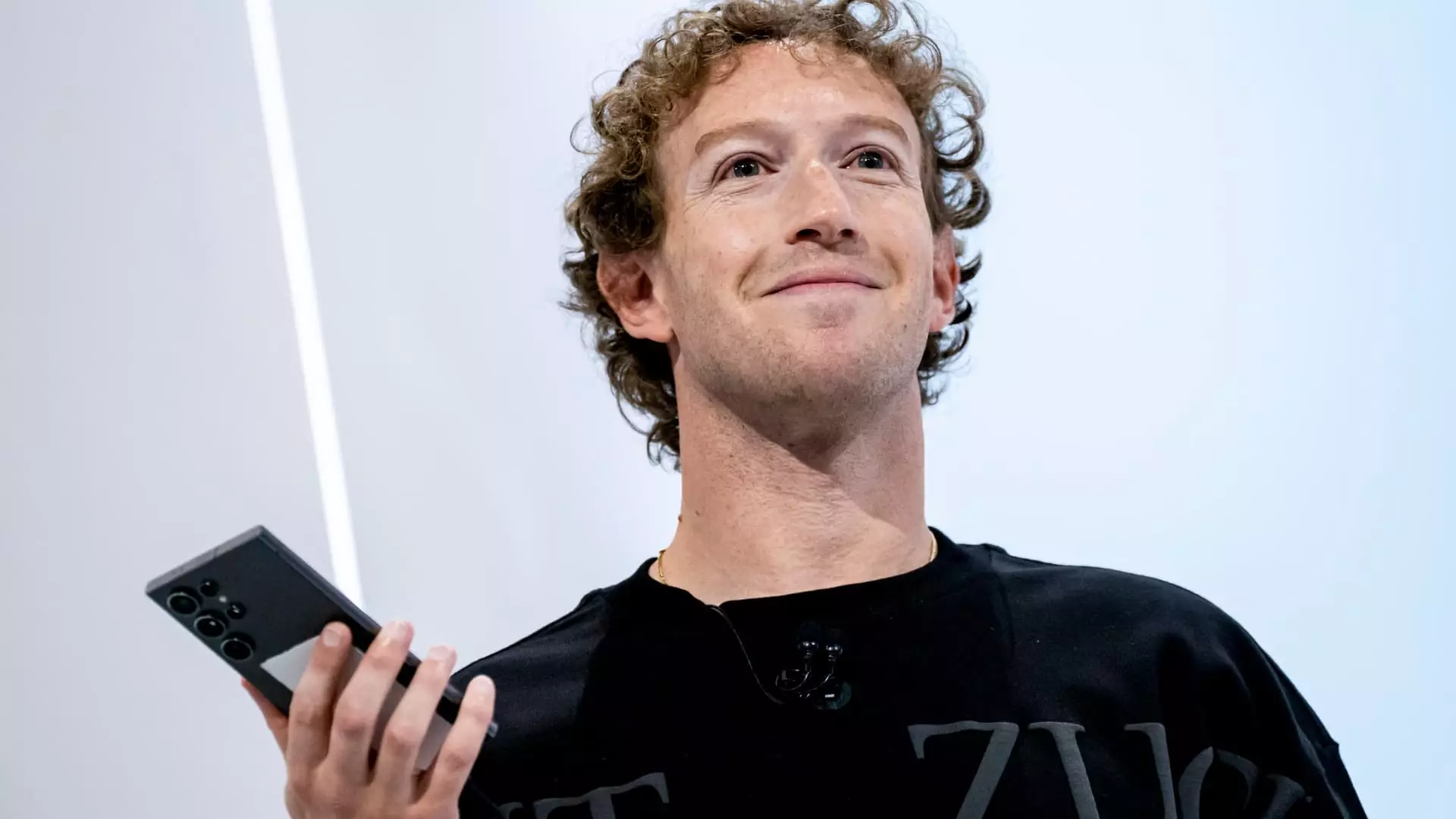In the realm of social media and public discourse, responsibilities and influence often intertwine in ways that spark significant debate. Recently, Mark Zuckerberg, CEO of Meta, opened up during a podcast with Joe Rogan, discussing the company’s alleged capitulation to political pressure regarding the discussion of Covid vaccine side effects. This revelation not only highlights the challenges faced by tech companies in navigating the complex world of health-related misinformation but also raises questions about the implications of political influence in the digital space.
Zuckerberg has positioned himself as a proponent of vaccines, indicating a belief that their benefits outweigh the drawbacks. However, his admission about the Biden administration’s pressure to censor content raises critical ethical questions. While pushing for public health initiatives, should governmental bodies dictate the narratives shared on social media? This dichotomy presents a significant dilemma: the balance between ensuring public health and safeguarding freedom of speech. Zuckerberg’s comments suggest an uncomfortable reality where the demand for vaccine rollouts directly conflicts with transparency regarding potential side effects.
The former president’s influence, through parties and funding, has created a scenario where political leanings might push for sanitized narratives, making it difficult to find a neutral ground. The emphasis on the “greater good” can often lead to the suppression of valid concerns raised by members of the public. Zuckerberg’s regret over the company’s past responses to such pressures suggests a reconsideration of how to approach fact-checking and moderation to maintain a platform that encourages open discourse without devolving into unchecked misinformation.
In a notable shift, Meta announced its decision to move away from third-party fact-checking, instead opting for user-generated community notes. This decision aligns Meta more closely with platforms like X, helmed by Elon Musk, who has driven his own agenda to reshape how social media engages with information. This transition is significant; it represents a departure from the established practices of relying on external verification and shifts the responsibility onto users themselves. While this may enhance community engagement, it raises concerns about accountability, quality of information, and the potential for misinformation to proliferate.
The implications of Biden’s comments on Meta’s new policy further illuminate the complex landscape of social media regulation. Biden condemned the idea that a platform could simply discard fact-checking in favor of user commentary, perceiving it as eroding the integrity of information shared online. There exists a tension between entrepreneurial freedom and public accountability that is becoming increasingly relevant. What does it mean for the public when the platforms we rely on for information decide to prioritize user engagement over factual verification?
The Broader Impact on Technology and Governance
Zuckerberg’s critique of the American government’s inadequate protection of the technology industry underscores a larger conversation about regulatory frameworks in the digital age. He highlighted the substantial fines imposed on technology companies by the European Union over the past two decades, arguing that the U.S. must adopt a more protective stance to maintain competitiveness in the global arena. This plea for improved governance evokes a larger question: how can the U.S. create policies that strike a balance between fostering innovation and protecting public welfare?
Engagement with leaders, such as former President Trump, represents a complex intertwining of politics and business where the objectives of digital platforms, governmental health policies, and the wider societal implications merit scrutiny. Zuckerberg’s optimism regarding a pro-American agenda under a Trump presidency demonstrates the multifaceted relationship tech leaders must navigate with political entities.
In navigating this interconnected landscape of health communication, political influence, and technology, it is essential to foster dialogue that honors both public health and free expression. Zuckerberg’s revelations serve as a reminder of the power dynamics at play in the digital sphere, where content moderation strategies directly impact discourse surrounding critical issues such as public health.
Looking forward, tech companies must strive for transparent policies that invite meaningful discussions without falling prey to censorship or misinformation, ensuring that user engagement does not come at the expense of truthfulness. Balancing these competing interests will be vital as society continues its evolution into an increasingly interconnected and complex digital age. Through diligent navigation of these tensions, it is possible to promote a healthier public discourse that benefits all.


Leave a Reply